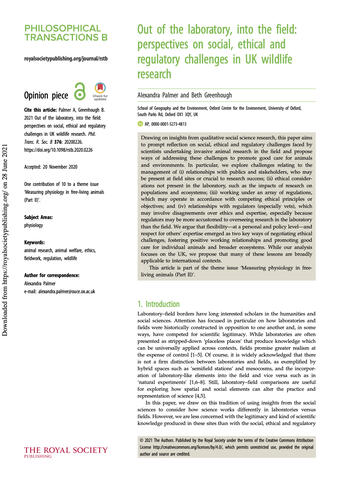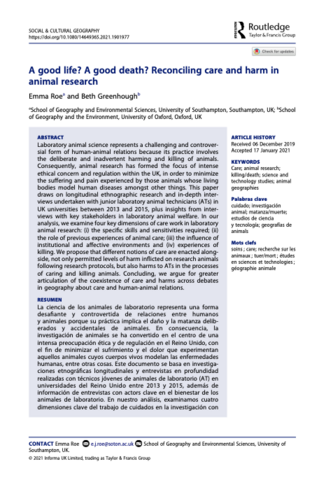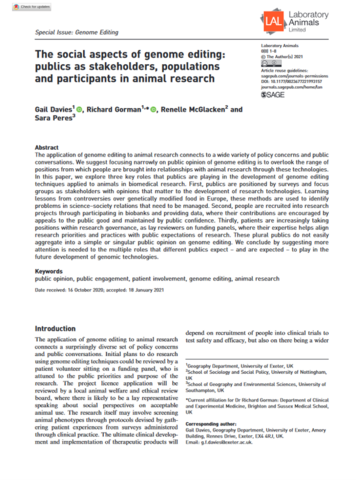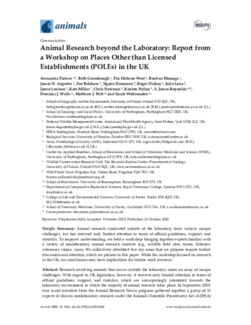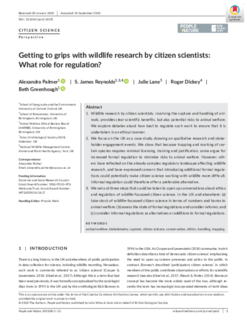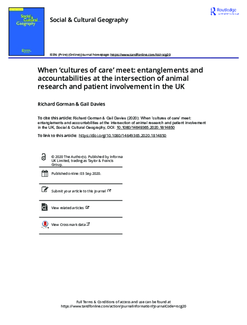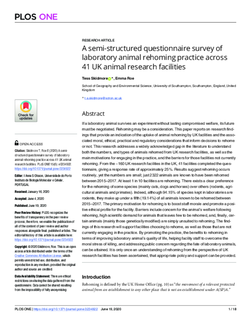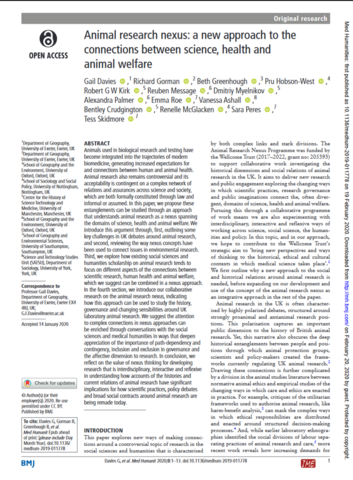Publications: Papers
Drawing on insights from qualitative social science research, this paper aims to prompt reflection on social, ethical and regulatory challenges faced by scientists undertaking invasive animal research in the field. We explore challenges relating to the management of (i) relationships with publics and stakeholders; (ii) ethical considerations not present in the laboratory; (iii) working under an array of regulations; and (iv) relationships with regulators (especially vets). We argue that flexibility—at a personal and policy level—and respect for others’ expertise emerged as two key ways of negotiating ethical challenges, fostering positive working relationships and promoting good care for individual animals and broader ecosystems.
Laboratory animal science represents a challenging and controversial form of human-animal relations because its practice involves the deliberate and inadvertent harming and killing of animals. We propose that different notions of care are enacted alongside, not only permitted levels of harm inflicted on research animals following research protocols, but also harms to ATs in the processes of caring and killing animals.
The application of genome editing to animal research connects to a wide variety of policy concerns and public conversations. In this paper, we explore three key roles that publics are playing in the development of genome editing techniques applied to animals in biomedical research: as publics, as populations, and as participants.
Endotoxin testing is a vital part of quality and safety control in pharmaceutical production. The primary method for this testing in North America and Europe is the limulus amebocyte lysate (LAL) test, a critical component of which is the blood of Atlantic horseshoe crabs (Limulus polyphemus). Procuring blood for LAL testing involves capturing and bleeding over 500,000 crabs from wild marine populations each year. Whilst efforts are made by manufacturers to return crabs to the sea following the collection of blood, there is a level of mortality and sub-lethal impact involved, prompting increasing discussions about welfare and ethics. The 3Rs – the ambition to where possible, replace, reduce, and refine the use of animals – are established and accepted worldwide as the best framework for governing animal-dependent science. However, the biomedical utilization of horseshoe crabs to produce the LAL test has rarely been viewed through a 3Rs framework. More recently, there has been a renewed attention on sustainable methods and alternatives to the LAL test. Drawing on in-depth qualitative interviews, this article examines stakeholder perspectives on opportunities for thinking with the 3Rs, considering current appetites to replace, refine, and reduce contemporary biomedical reliance on horseshoe crabs. The shape of conversations about the biomedical utilization of horseshoe crabs has shifted significantly in recent years, and the 3Rs are an important driver of change, offering the potential to advance the use of more sustainable methods, and realize the welfare considerations increasingly expected across science and society.
A good culture of care, empowering individuals within organisations to care and reflecting wider social expectations about care, is now a well-documented aspiration in managing practices of laboratory animal research and establishing priorities for patient and public health. However, there is little attention to how different institutional cultures of care interact and what happens to the accountabilities of caring roles and the entanglements of caring practices when institutional cultures meet.
Despite its increasing attention from animal welfare organisations, there is currently a lack of research which explores the numbers and species rehomed after being used in animal research. This paper, using a semi-structured questionnaire, explores rehoming practice across UK animal research facilities in order to provide an overall picture of current rehoming practice.
Animal research is contingent on a complex network of relations and assurances across science and society, which are both formally constituted through law and informal or assumed. In this paper, we propose these entanglements can be studied through an approach that understands animal research as a nexus spanning the domains of science, health and animal welfare.
